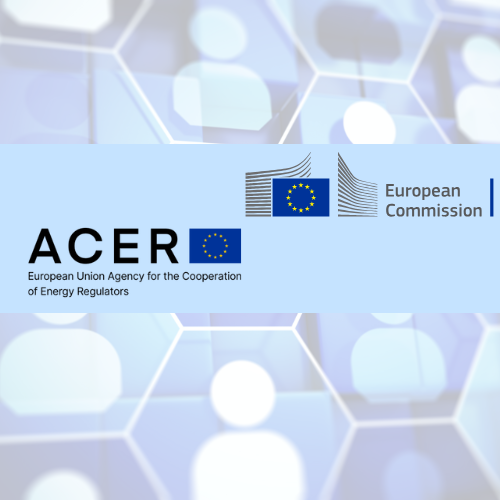The case facts of Green Plains’ violations are as follows:
- Green Plains is an ethanol fuel producer headquartered in Omaha, Nebraska, and purchases natural gas to use in ethanol production;
- Green Plains has natural gas storage rights at MichCon and, during winter, Green Plains sells its gas inventory during bidweeks. Bidweek for each month occurs during the last three business days of the month immediately preceding the delivery month. During bidweek, market participants transact gas contracts for delivery and settlement for each day of the following month;
- MichCon is a major physical gas hub in the North American gas market. During bidweek at the MichCon hub, participants trade monthly gas at fixed price and at physical basis. The volume weighted average price of the reported transactions are used to form the IFERC MichCon index, which is published by S&P Platts each month;
- Green Plains was a significant seller of physical gas during bidweek for four months in 2023 (January, February, March, and April) with its transactions accounting for 32.70%, 25.86%, 30.40%, and 36.17% respectively of the volumes reported to the Platts IFERC MichCon index. Green Plains did not independently report its transactions to Platts;
- Green Plains held short financial positions that settled on the IFERC MichCon index in January, February, March, and April 2023, with peak bidweek financial exposures of 115,000 MMBtu/d, 402,500 MMBtu/d, 367,500 MMBtu/d, and 257,500 MMBtu/d, respectively;
- During the above-named four months in 2023, Green Plains sold monthly physical gas during bidweek at MichCon at a loss or negligible profit, while holding leveraged short financial basis positions that settled off the IFERC MichCon index;
- FERC's Office of Enforcement (OE) concluded that, as part of a manipulative scheme, Green Plains sold gas at a loss or negligible profit during bidweek in four months in 2023 (January through April) to benefit its short leveraged financial positions that settled off the IFERC MichCon index;
- The Green Plains’ trader responsible for these bidweek sales also managed natural gas storage located at MichCon on behalf of Green Plains and entered into short financial positions at that same location knowing that Green Plains would need to sell gas from storage during winter months;
Although a financial short can be a hedge for gas in storage, Green Plains’ financial positions were often orders of magnitude larger than its quantity of gas in storage.
- As a result of its MichCon bidweek trading, Green Plains obtained an additional profit of USD $19,069 on its financial positions that settled off of the IFERC MichCon index for the first four months of 2023;
- In 2021, Green Plains engaged in substantively similar MichCon bidweek trading and was the subject of a FERC OE Division of Analytics and Surveillance (DAS) inquiry;
- In response to the DAS inquiry, Green Plains agreed to implement compliance enhancements to prevent this type of speculative trading however, the firm failed to comply fully with the enhanced compliance procedures.
Alignment with FERC’s November 2016 White Paper on Anti-Market Manipulation Enforcement Efforts, 10 years after the Energy Policy Act of 2005 (“EPAct 2005”)
The Green Plains case is a reminder to all firms operating under FERC's jurisdictions of the principles laid out by the federal regulator in its 2016 Staff White Paper on Anti-Market Manipulation Enforcement (click here) which outlines the core elements of its enforcement framework and provides information on:
- Various factors that have been found to be indicative of fraudulent conduct under the Anti-Manipulation Rule;
- Specific types of conduct and behaviours that have been found to constitute market manipulation;
- Mitigating and aggravating factors that have lessened or heightened an entity’s culpability and sanctions for such conduct; and
- The types of cases that staff has closed without action and the various factors that led to such decisions.
The Green Plains' violations in the context of the FERC white paper are as follows:
1] Alignment with the “Prohibition Against Manipulation” Under EPAct 2005
The FERC White Paper emphasises the three-part test under 18 C.F.R. § 1c.1, which was established following the enactment of EPAct 2005 and enhanced under Order No. 670 as follows:
- Use of a fraudulent device, scheme, or artifice;
- With the Requisite Scienter (a legal term meaning knowledge of wrongdoing or intent to deceive, typically used to prove fraud or misconduct); and
- A jurisdictional transaction (i.e., in connection with a FERC-jurisdictional transaction).
Green Plains Alignment:
- Device or Scheme: Green Plains used physical bidweek trading to impact the IFERC MichCon index qualifying as a manipulative device because the trades were uneconomic and lacked commercial rationale outside of their financial benefit.
- Scienter: The case facts suggest scienter as the trading pattern occurred across multiple months, after prior FERC scrutiny, and involved significant short financial positions suggesting Green Plains was aware of the potential impact on the index and deliberate exploitation of the physical versus financial trade position.
- Jurisdictional Transaction: The trades were in FERC jurisdictional physical natural gas markets and influenced a benchmark widely used in derivatives and physical contracts.
2] Emphasis on “Uneconomic Trading” as a Manipulative Signal
The White Paper devotes a section to uneconomic trading where market participants are willing to lose money in one product or market to benefit another related position. It identifies this as a primary focus area for enforcement.
Page 14 of the FERC white paper further describes the scenario:
Because uneconomic trading is one sign of fraudulent conduct, compliance departments at trading companies should consider monitoring and reviewing their traders’ profit and loss calculations, particularly for instances in which a trader is accepting persistent losses in a price-setting product while simultaneously having exposure to a position whose value is tied to such trading. Managers and compliance professionals should be concerned, or at least ask questions, about any behavior where the company appears indifferent to profit and loss considerations.
It further provides additional description of uneconomic trading from the complementary Staff White Paper on Effective Energy Trading Compliance Practices (click here) as follows:
“[I]f a trader is engaging in a scheme that involves losing money in a price-setting product, such as virtual transactions in an organized electric market, to benefit a financial position that is settled off of the price being targeted, an effective way to identify this behavior might be to monitor the trader’s virtual PnL, at each location, for persistent losses or a pattern of losses.”
Green Plains Alignment:
- It consistently sold physical gas at or near a loss during bidweek;
- The only economic rationale for this behaviour was the associated short financial positions indexed to IFERC MichCon; and
- Alignment with FERC’s illustrative example of uneconomic trading being “motivated by benefits obtained through a related financial position.”
3] Market Integrity and Index Manipulation
The white paper discusses FERC’s concern with conduct that undermines the integrity of price formation, especially where index prices are used to settle a range of contracts. It references historical cases like the Energy Transfer Partners LP and BP America Inc Houston Ship Channel (HSC) cases (see pages 21 - 22), where the manipulation of benchmark indexes created broader market distortions.
Green Plains Alignment:
- The MichCon index was materially shaped by Green Plains’ bidweek trading, which at times constituted more than a third of all reported volume;
- The activity had the potential to influence financial settlements for a large number of counterparties even those unrelated to Green Plains; and
- FERC’s concern with benchmark reliability and trust in market outcomes mirrors the white paper’s focus on “preserving the integrity of markets.”
4] Repetition of Conduct Post-Engagement
The white paper highlights how FERC considers repeat behaviour or post-warning violations (see page 33) as aggravating factors. Firms that fail to take adequate action following engagement are subject to elevated penalties.
Green Plains Alignment:
- FERC’s OE DAS contacted Green Plains in 2021 with concerns over similar trading patterns;
- Although the company committed to compliance enhancements, these were not effectively implemented by 2023; and
- The white paper specifically identifies this type of failure as a hallmark of a weak compliance culture and a key trigger for civil penalties.
5] Compliance Culture and Remediation Expectations
The white paper emphasises the importance of a “culture of compliance” and the expectation that market participants develop proactive and responsive compliance infrastructures, especially after a regulatory inquiry.
Green Plains Alignment:
- The failure to fully implement the committed post-2021 compliance reforms suggests a "paper programme" rather than a living system;
- The eventual consent agreement imposed mandatory annual training, quarterly reviews, and trading restrictions which are steps FERC would expect from a firm with a properly developed compliance culture in the first place;
- The enforcement outcome reflects the very compliance failings the white paper warns against e.g. weak control implementation, failure to embed controls, and reactive rather than proactive compliance.
Compliance Learnings
While cross-market manipulation is not a new market abuse trading behaviour, the Green Plains case is a reminder to firms operating under FERC jurisdictions of their compliance requirements. Several learnings that can be applied from this case are as follows:
- Post-audit behaviour matters. Should your firm receive any formal or informal regulatory inquiry, it should immediately assess whether related conduct could be systemically recurring and implement controls that are auditable and enforced, not just documented. It should also invite Internal Audit to perform an independent review of those controls in a future audit cycle.
- Conduct a Post-Trade Forensics Review of Index Linked Activity. Back test trades against financial positions and identify trades during index setting windows with pricing anomalies.
- Enhance Trade Surveillance to include the ability to monitor for potential cross-market manipulation (i.e. physical versus financial). Compliance teams should track where their physical trading activities might impact index pricing, particularly during thin liquidity periods during pricing windows such as bidweek. This includes alerts for loss making trades, large swap positions, and repeated conduct in price setting windows. Also consider pre-trade alerts for large volume index-setting trades.
- Establish a “Dominant Market Participant” Escalation Framework. Any trading that exceeds 10-15% of market volume in a pricing window should trigger compliance review and executive escalation.
- Thin markets are high risk markets – update your Risk Framework accordingly. Participation in smaller or illiquid regional hubs, where a firm can represent a significant portion of volume, introduces disproportionate enforcement risk. Market Abuse Risk frameworks should score such activity higher and impose elevated controls.
- Mandate Training on Physical / Financial Conflict Risk. Enhanced focus should be placed on benchmark mechanics, uneconomic trading indicators, and documentation requirements for index related activity.
- FERC White Paper principles remain an active enforcement doctrine. The ten-year retrospective published by FERC remains a living enforcement doctrine. Green Plains is evidence that FERC’s post-EPAct enforcement strategy continues to follow the blueprint set out in that report.

.jpg)
